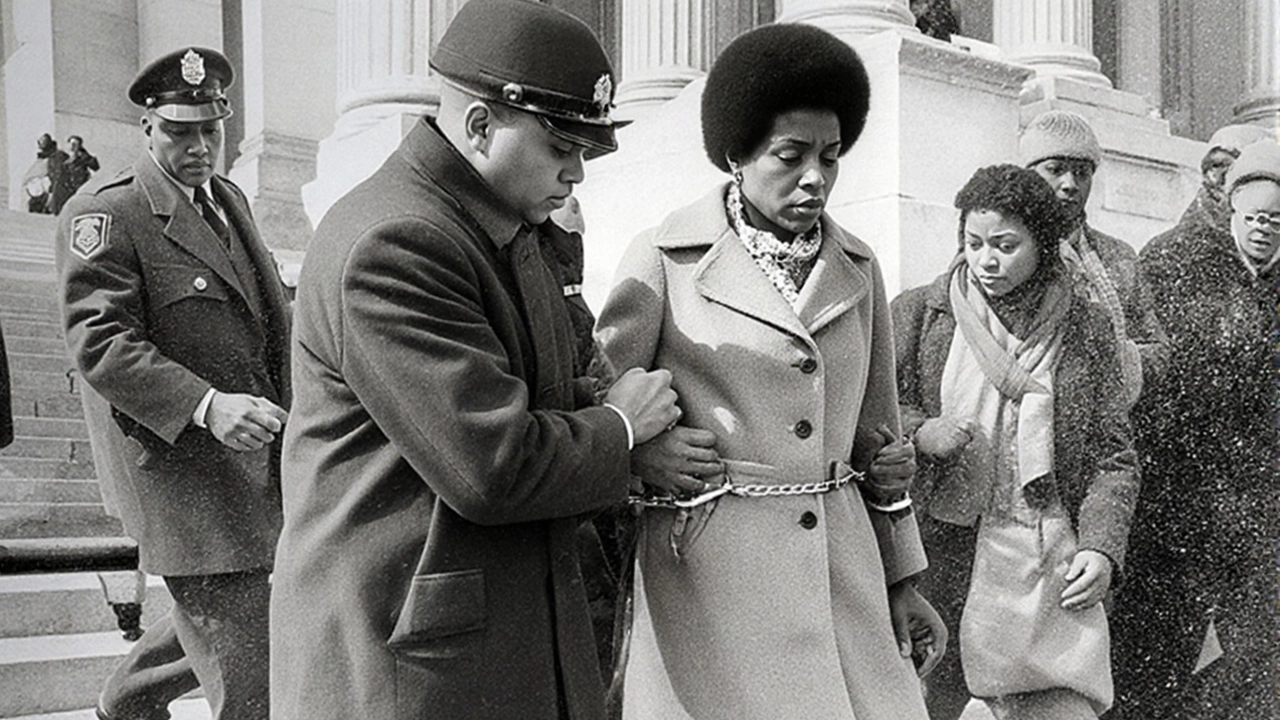A Life on the Run
On September 25, 2025, the Cuban Ministry of Foreign Affairs announced that Assata Shakur had died in Havana after battling health problems linked to her age. The news closed a chapter that began in the turbulent 1970s, when a young Black activist from Queens found herself at the center of a deadly shootout on the New Jersey Turnpike.
Born Joanne Chesimard in Flushing, New York, she grew up split between the city and Wilmington, North Carolina. College years at the Borough of Manhattan Community College and City College of New York sparked her political awakening. By the early 1970s she was involved with the Black Liberation Army, a group that embraced armed struggle against what they saw as systemic racism.
May 1973 proved decisive. Trooper Werner Foerster and a fellow officer stopped a car carrying Shakur and two accomplices. A gunfight erupted; Foerster and a passenger were killed, while Shakur was wounded and captured. The incident propelled her onto the New Jersey State Police's Most Wanted list and, decades later, onto the FBI's Most Wanted Terrorists roster.
Trials between 1973 and 1977 yielded a mixed verdict. Three charges were dismissed, three resulted in acquittal, but she was convicted of Foerster’s murder and seven other felonies. Her defense argued that a shot to her right arm left her unable to fire a weapon, a claim that never swayed the court.
In 1979, while serving a life sentence at Clinton Correctional Facility for Women, Shakur escaped with help from the Black Liberation Army and the May 19 Communist Organization. The flight led her straight to Cuba, where Fidel Castro granted political asylum in 1984. From that point on, she lived under the watchful eyes of both the Cuban government and U.S. law‑enforcement agencies, who kept a $2 million bounty on her capture for more than four decades.
- 1973 – Turnpike shootout and arrest.
- 1977 – Conviction on murder and related felonies.
- 1979 – Escape from Clinton Correctional Facility.
- 1984 – Granted asylum by Cuba.
- 2013 – First woman added to FBI’s Most Wanted Terrorists list.
- 2025 – Death in Havana at age 78.

Legacy and International Fallout
Shakur’s story is more than a criminal case; it is a lens through which to view decades of Cold‑War tension, racial politics, and the fight over political asylum. For many activists, she symbolized resistance against a justice system they deemed biased. For U.S. authorities, she remained a fugitive whose escape highlighted security lapses within the prison system.
The Cuban government, meanwhile, used her presence as a diplomatic bargaining chip. Over the years, officials repeatedly rejected U.S. extradition requests, calling the convictions politically motivated. The case resurfaced each time U.S.–Cuba relations thawed, reminding both sides of unresolved grievances.
Within activist circles, Shakur’s writings and speeches on anti‑sexism and anti‑racism continued to inspire new generations. Her autobiography, published while in exile, is still cited in university courses on civil‑rights history. Critics, however, argue that her alleged involvement in violent acts overshadows any ideological contributions.
Her death is expected to spark renewed calls for a reevaluation of her legal status. Some families of victims, especially those of Trooper Foerster, hope for closure, while human‑rights groups urge a balanced look at the political context of her conviction.
As the world digests the news, one thing is clear: the life of Assata Shakur—full of protest, prison, escape, and exile—remains a potent reminder of how deeply personal stories can intersect with international politics.
